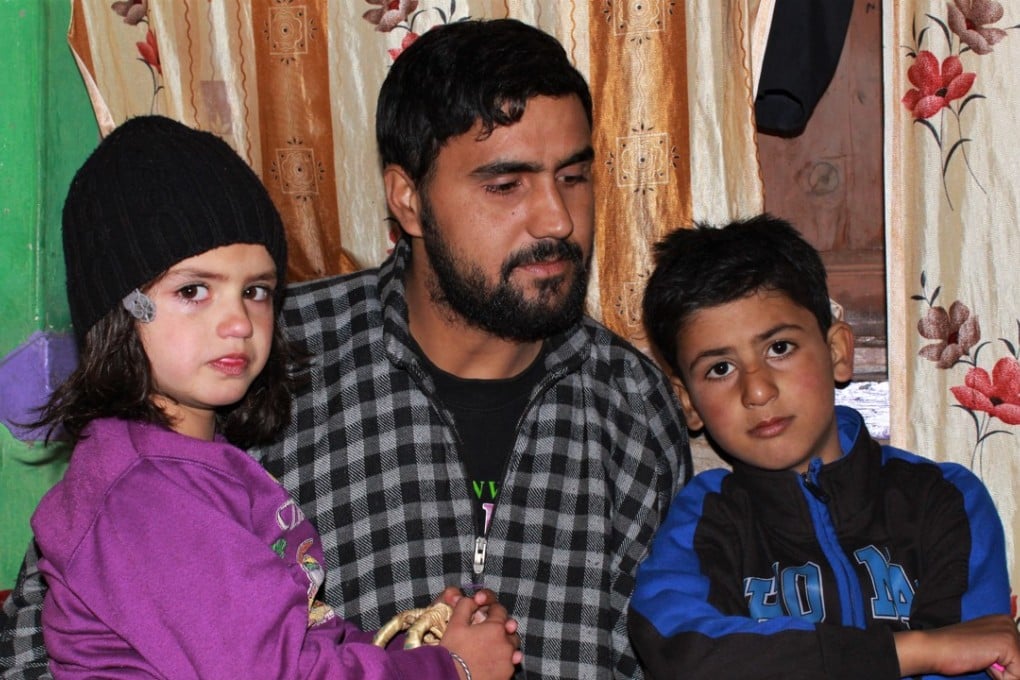Is India’s All-Out campaign to blame for Kashmir’s civilian deaths?
- Civilian deaths have been on the increase since 2017, when the Indian government launched a counter-insurgency operation
- The operation has reignited tensions that have been bubbling over for decades

Firdousa Akhter was seven months pregnant when she was shot through the neck while washing dishes at the makeshift sink outside her house. The mother of two had been caught in the crossfire between armed rebels and government troops stationed in Pulwama, in Indian-administered Kashmir.
“She instantly fell down and, at first, we thought she had fainted out of fear,” recalls her husband of 11 years, Khursheed Ahmad Sheikh, as his son Misbah, 7, and daughter Aalima Jan, 5, play in a dimly lit room at his parents’ home. “We took her inside the house and couldn’t do anything else for at least twenty minutes because the gunfight was still raging.”
Firdousa died before they could reach hospital. “We buried two family members that day,” says Khursheed’s mother, Fatima. “Firdousa and her unborn baby.”
As Modi cuts it loose, Kashmir is about to get worse
Deaths like Firdousa’s are increasing in Kashmir. This is raising fears that the insurgency, which has pitted separatist groups against the Indian government since the late 1980s, is taking a turn for the worse.
Already this year, 144 civilians have been killed, as compared with 108 civilian deaths throughout the whole of 2017. During the same period, the number of deaths overall, including government troops and rebel fighters, went from 451 to 520.
The increase is blamed by some people in Kashmir on All-Out, the Indian government’s heavy-handed counter-insurgency operation, which it launched last year.
All-Out, named after a brand of mosquito repellent, was launched in the aftermath of mass civilian protests triggered by the killing of popular rebel leader Burhan Wani. Kashmir’s separatist leadership immediately denounced the operation, calling it a tactic “to instil fear” within Kashmir’s “pro-freedom leaders, activists and workers through military might”.